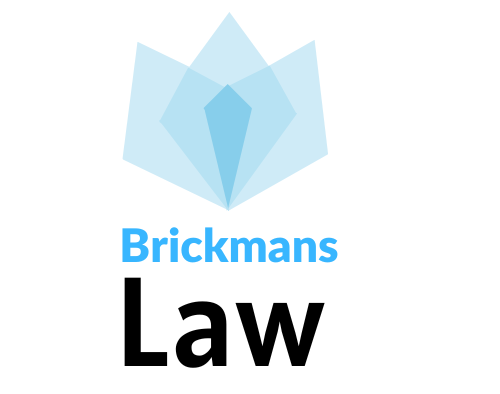Intellectual Property Rights Protection for Content Creators
What is Intellectual Property?
Intellectual Property refers to the creation of the mind such as literary and artistic works, designs and symbols, names and images. etc.
Intellectual Property is further classified into Copyrights, Trademarks, Patent, Industrial Designs and Trade secrets.
Who is a content creator?
Content creation is the contribution of information to any media, especially the digital media.
A content creator is someone who creates content especially for professional purposes.
As a content creator, your work is subject to copyright. Copyright is automatic and refers to the protection given to literary and artistic works. Even though it is automatic, it is strongly advised that owners of literary works register it with the NCC ( Nigerian Copyright Commission). In 2020, a judgement was awarded by the Federal high Court to the tune of 703 million Naira. TV xtra Production &Anor V. National Universities Commission & Zain Nigeria. It was easier for the Plaintiff to prove their case because they had previously registered their works with the NCC. The court contended that the defendant could have sought permission from the author before airing the show..
This is one of the most recent cases that has proven that intellectual property rights are respected in Nigeria .
INTELLECTUAL PROPERTY CHECKLIST FOR CONTENT CREATORS.
READ THE TERMS, CONDITIONS AND AGREEMENT OF EVERY SOCIAL MEDIA PLATFORM.
Before using any social media platform, it is advisable to thoroughly go through the terms and conditions. Read them carefully to ascertain your IP rights better.
TRADEMARK YOUR SOCIAL MEDIA HANDLES
Trademark is a word, phrase, symbol or design or a combination of any of them that identifies and distinguishes the source of the goods or services of one party from another.
It has to be distinctive to be registrable.
A trademark will not prevent a competitor from creating videos that are similar to yours. Trademarks do not protect content, but rather the way that the content is identified and promoted. It will not prevent the general public from using the slogan or logo. Trademarks only prevent direct competitors from using your branding materials to mislead consumers.
COPYRIGHT YOUR WORKS
A copyright would protect your intellectual property from intellectual theft
It is usually automatic and lasts throughout the lifetime of the license holder and 70 years after death.
For films, sound recordings, performances the copyright holder enjoys it for 50 years after first publication.
Works eligible for copyright are (S.1 Copyright Act)
Literary works
Musical works
Artistic works
Cinematograph films
Broadcast
Sound recordings
There are also other conditions for eligibility
- That the making did not involve infringement of the copyright of another work.
- Sufficient effort was expended in making the work to give it its original character.
- The work has been fixed in a definite medium of expression that is now known or to be developed later from which can be perceived either directly or with the aid of any machine.
- At the time the work was done, it was intended by the author to be used as a model or pattern to be multiplied by an industrial process.
Nature of Copyright- according to Section 6 of the Act, Copyright in work shall be the exclusive right to control the doing in Nigeria, in the case of a literary or musical work, to do and authorize the doing of any of the following acts;
- Reproduce the work in any material form;
- Publish the work;
- Perform the work in public;
- Produce, reproduce, perform or publish any translation of the work;
- Make any cinematograph film or a record in respect of the work;
- Distribute to the general public, for commercial purposes, copies of the work, by way of rental, lease, hire, loan, or similar arrangement;
- Broadcast or communicate the work to the public by a loudspeaker or any other similar device;
- Make any adaptation of the work;
- Do a translation or an adaptation of the work.
The doing of any of the acts mentioned above shall be in respect of a whole or a substantial part of the work either in its original form or in any way recognizably derived from the original.
Please note that not all “uses” can be classified as infringement.
Also remember to seek permission before using the intellectual property of others whether registered or not.
- Brand names
- Logos
- Products and services of a brand
- Sound recordings
- Visuals
- Videos and photos
- Written text and artwork
THE FUTURE OF INTELLECTUAL PROPERTY FOR CONTENT CREATORS
After the announcement by the CEO of Facebook, now Meta on the metaverse, a lot of companies also want a piece of the cake. For any brand looking to be part of the metaverse today, it is crucial to establish clear IP licensing arrangements with the metaverse platform provider. As with any IP licence, typical terms such as term, territory, and royalty rates are important, however, particular attention should be paid to the scope of the licence. A metaverse vendor may combine their own proprietary IP with a brand’s IP when creating content.
Brands should ensure that their contract with the metaverse vendor grants all necessary IP rights to give flexibility for the brand’s future uses.
Brands should also be aware of their partner metaverse platform’s terms of service and end user licence agreements. These documents should prescribe what players can and can’t do on its platform (user and community guidelines), as well as how the platform will handle infringement of third party IP.


